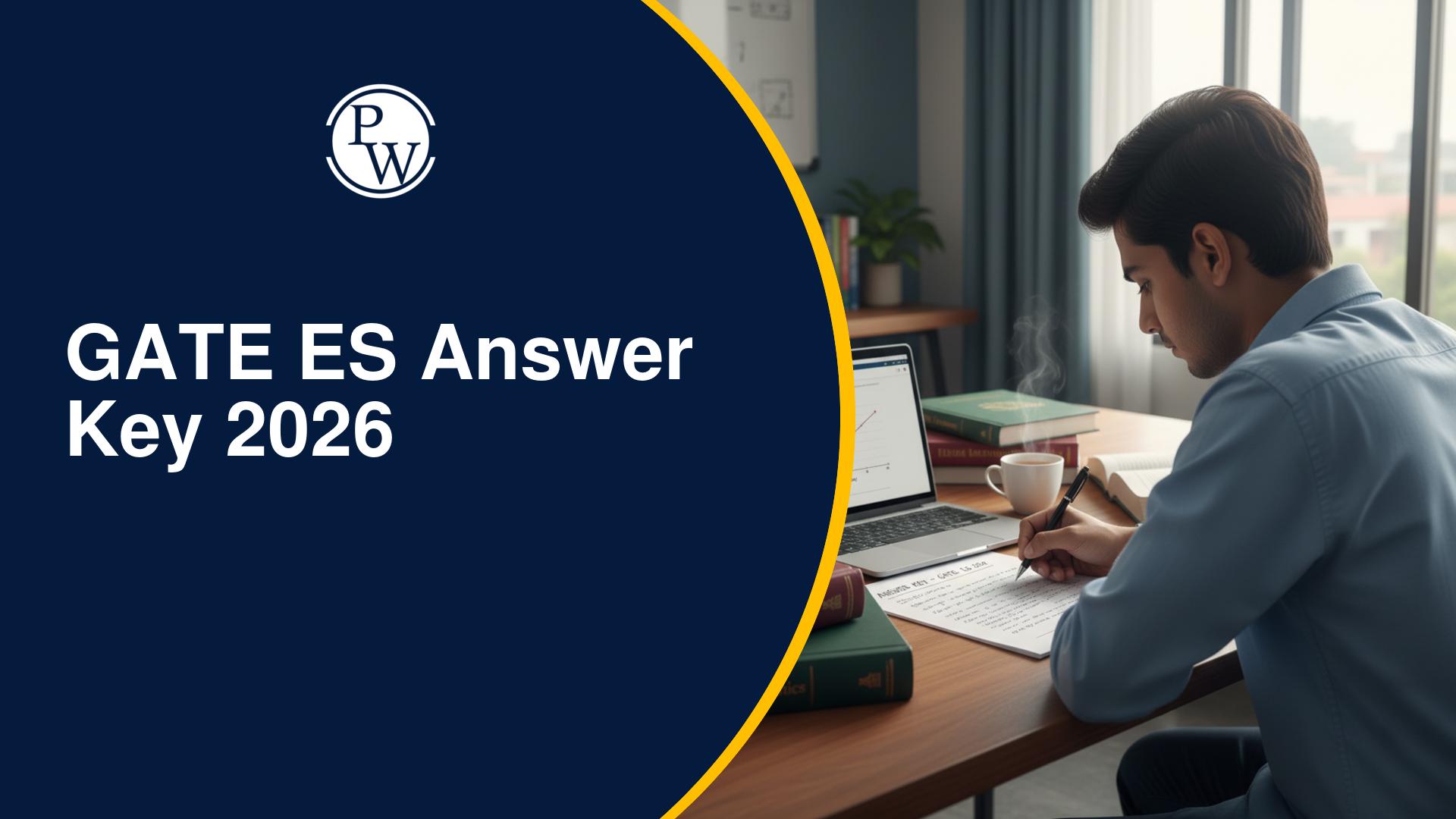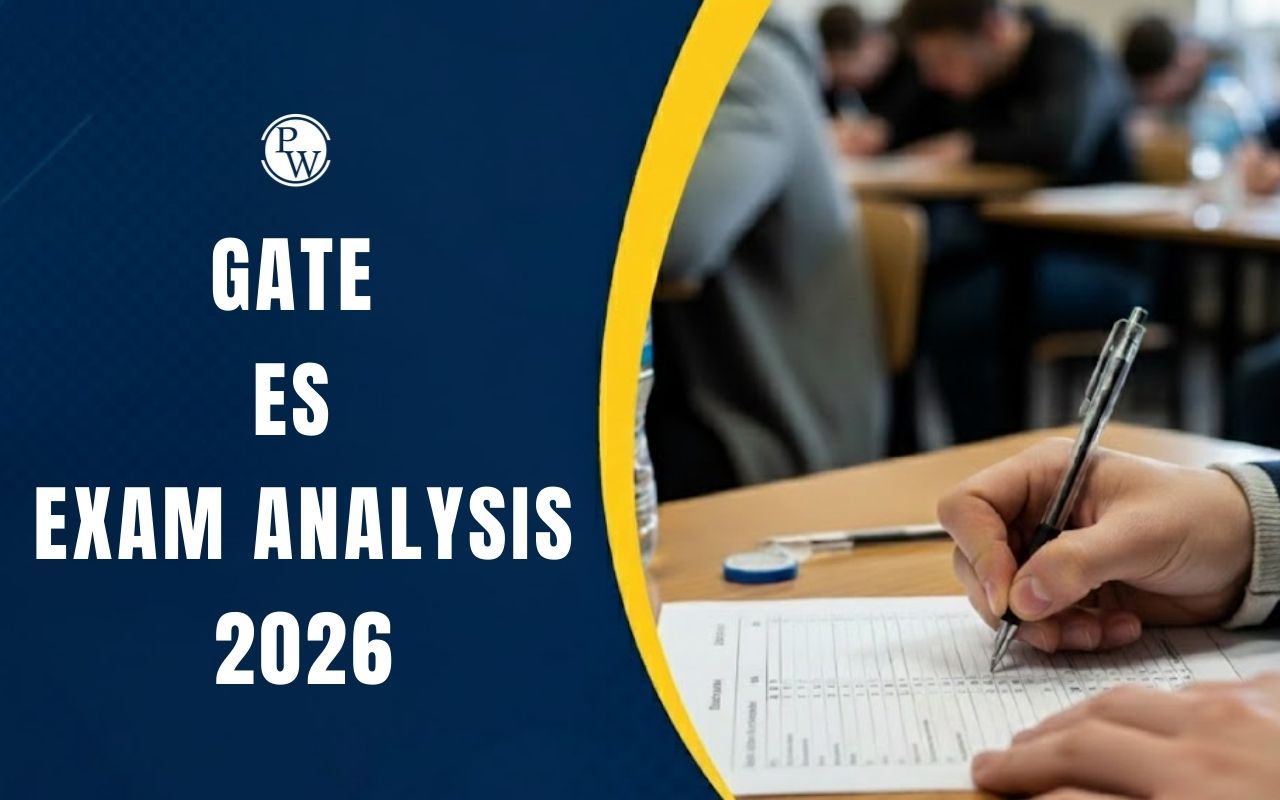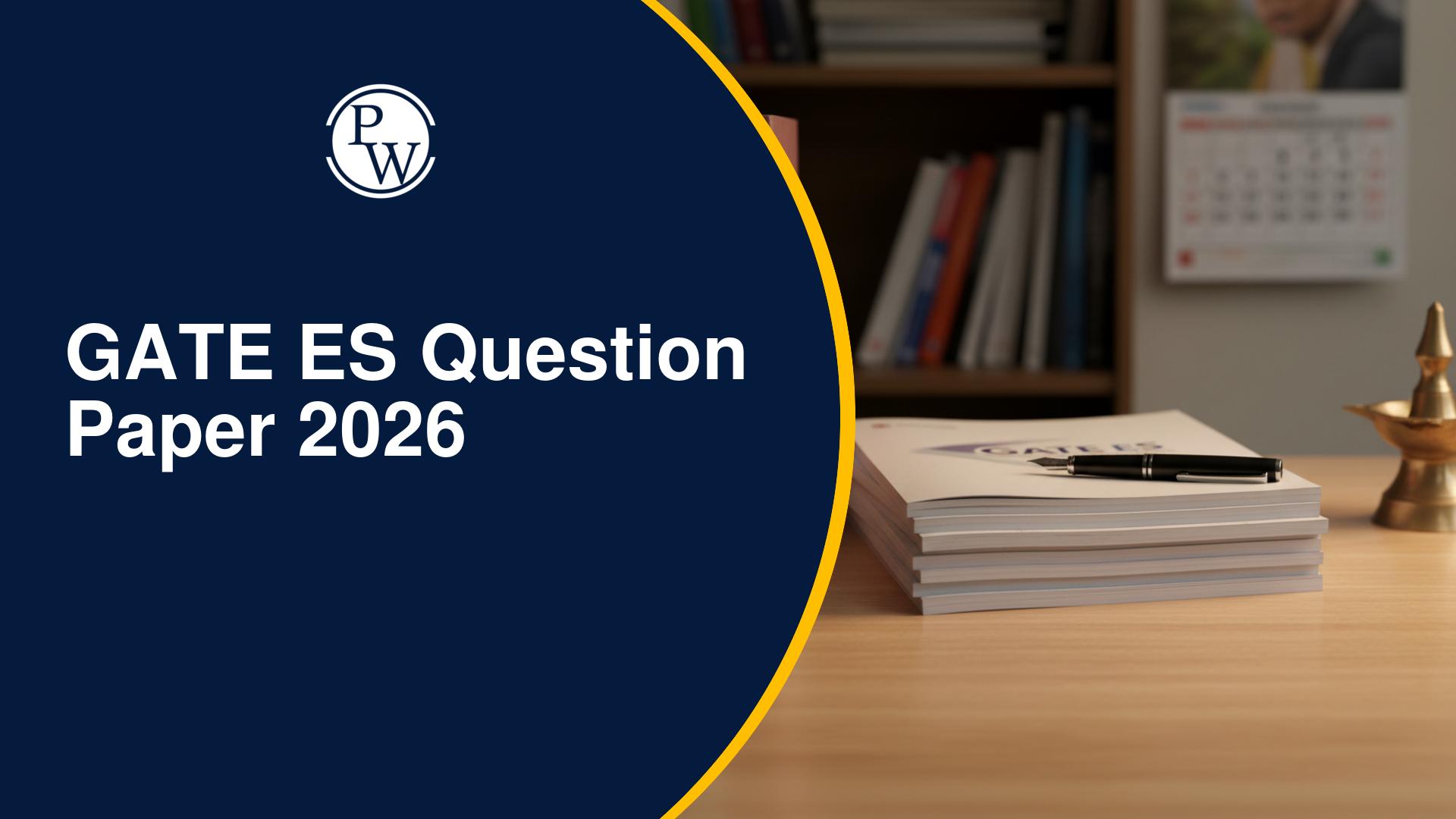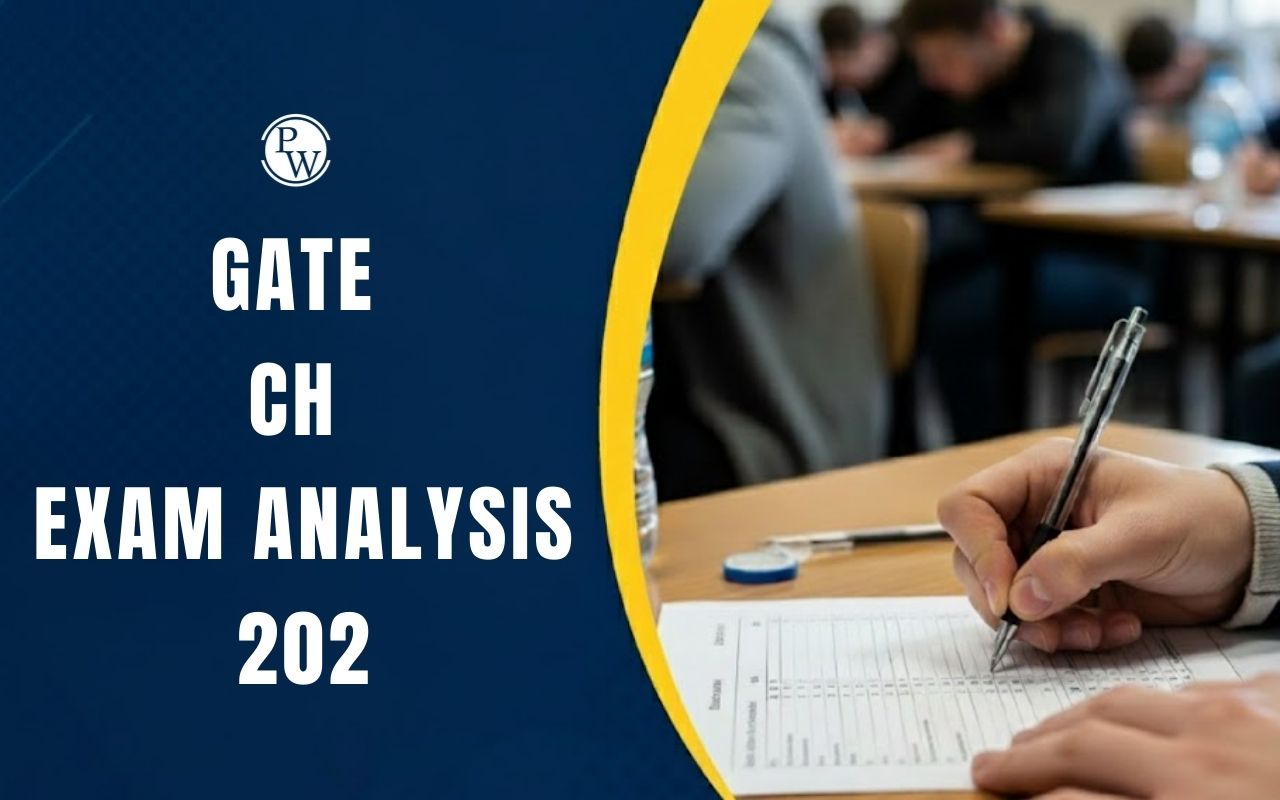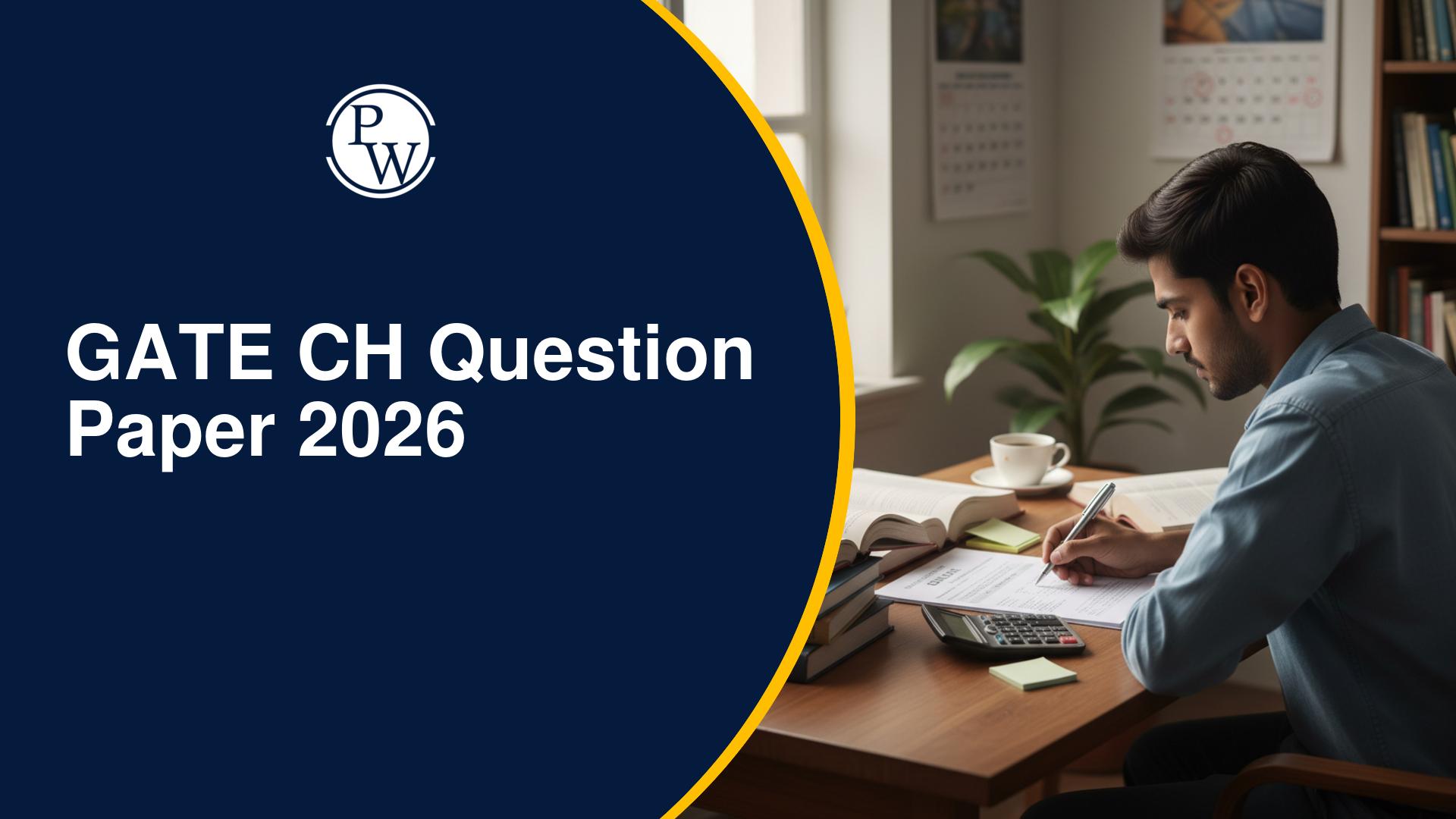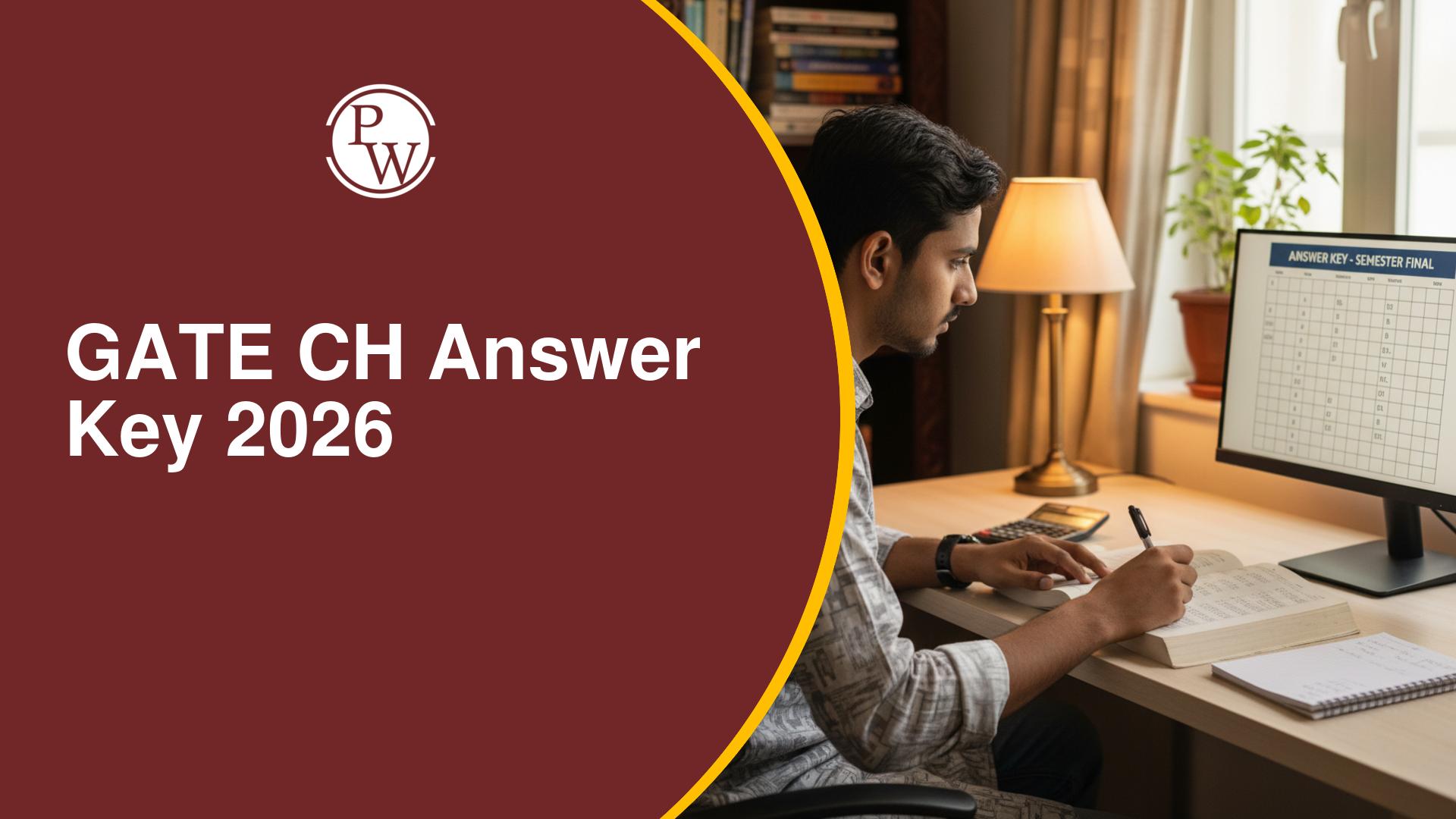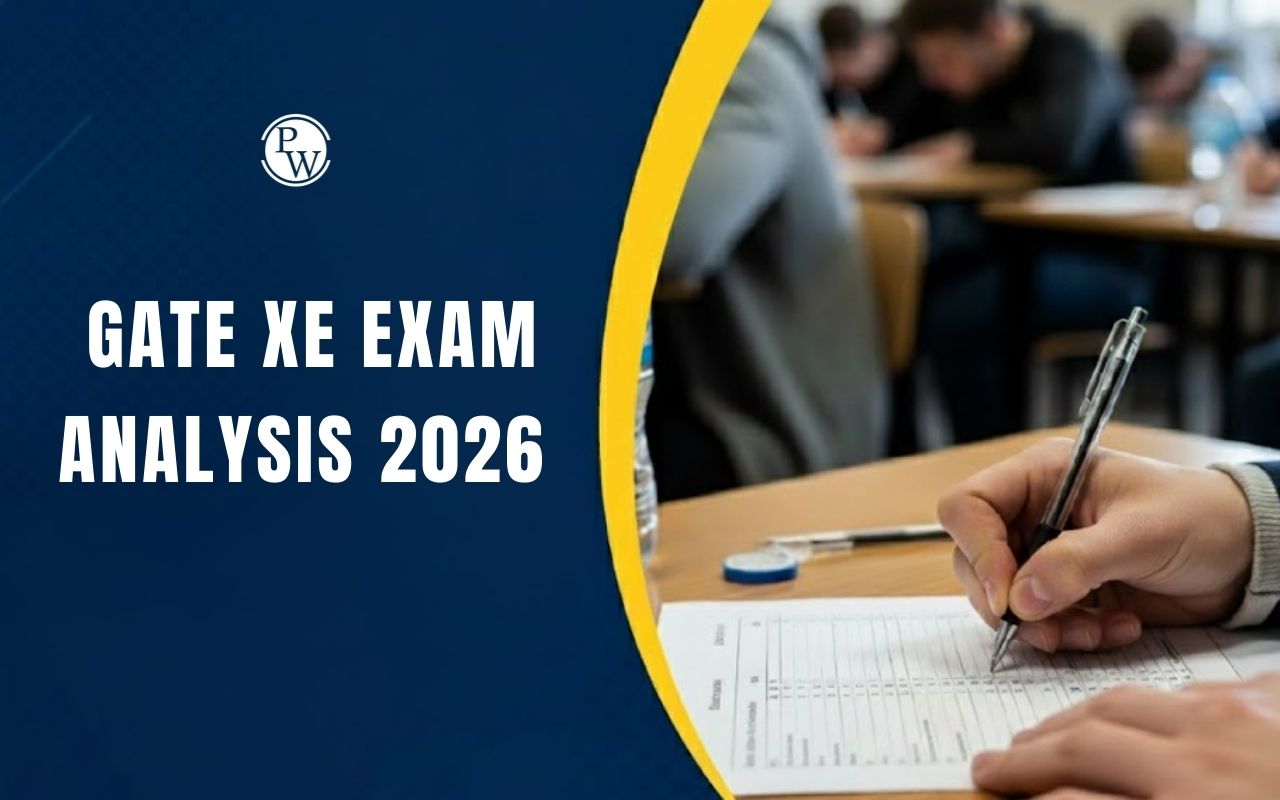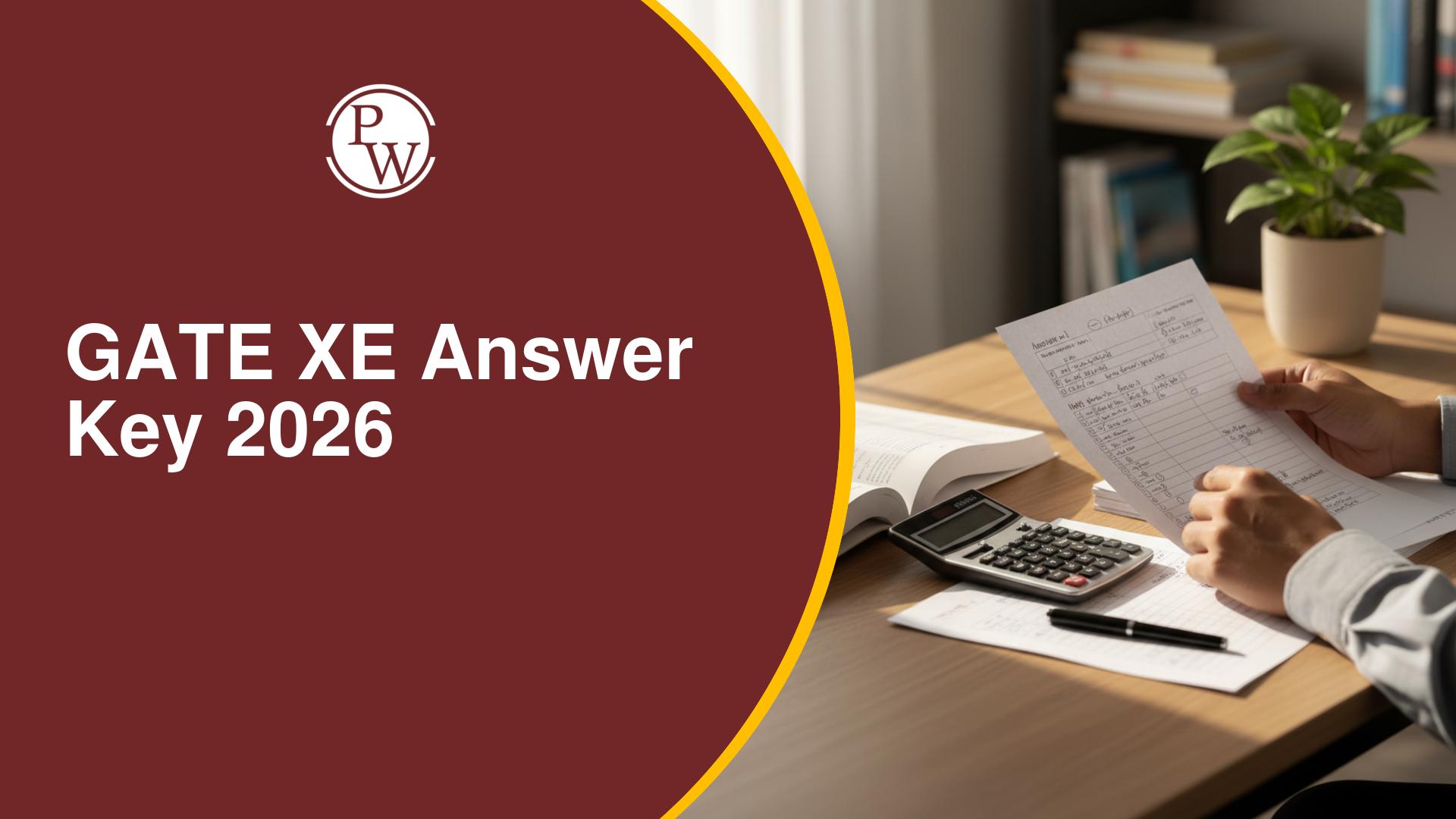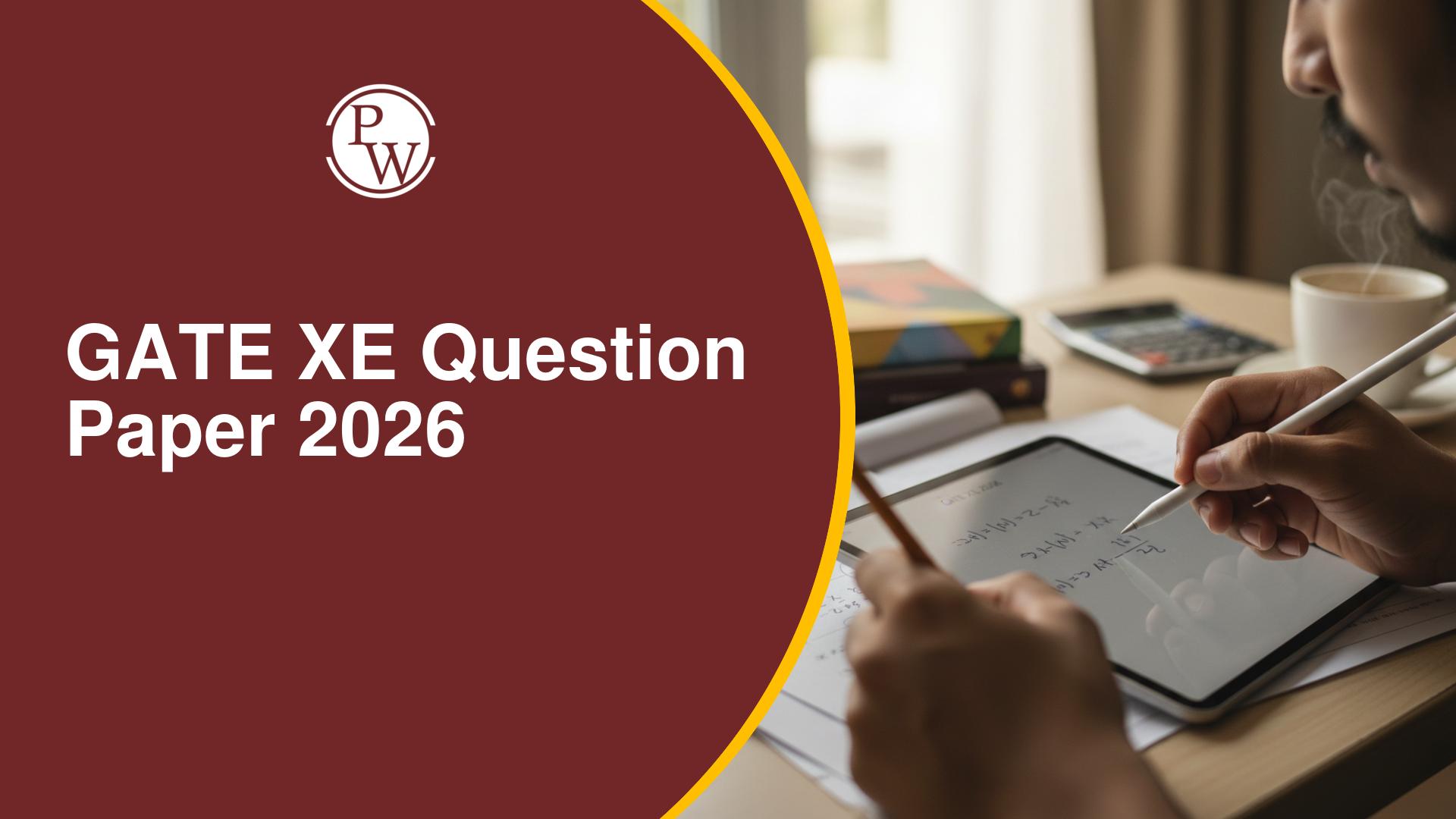
GATE Geomatics Engineering Syllabus 2026: The Graduate Aptitude Test in Engineering for the upcoming academic year is going to be conducted by IIT Guwahati. Candidates who are preparing to take the GATE 2026 Geomatics Engineering Paper 2026 must begin their preparation by reviewing the in-depth syllabus.
The GATE Syllabus for Geomatics Engineering covers a wide range of topics from General Aptitude and core subjects of Geology or Geophysics. Candidates are suggested to understand the entire syllabus thoroughly to ace their preparation in an effective manner.
The conducting institute will set the question paper in accordance with the official syllabus to assess the candidate's knowledge across various subjects. The GATE Geomatics Engineering Syllabus covers the important topics like Engineering Mathematics, Remote Sensing, GIS, Maps, and others, from which the questions in the final examination arise.
GATE Geomatics Engineering Syllabus 2026
The GATE Geomatics Engineering Syllabus 2026 is divided into two parts: Part A and Part B. Having a complete knowledge of the key topics included in the geomatics syllabus can significantly help applicants score well in the examination.GATE 2026 Syllabus for Geomatics Engineering
For applicants selecting GE in the GATE 2026 Exam, a comprehensive understanding of its syllabus is essential. Geomatics Engineering is one of the 30 papers included in GATE, and its syllabus is divided into two parts: Part A and Part B, with Part B further divided into Section 1 and Section 2. The GATE 2026 Syllabus for Geomatics Engineering encompasses a diverse range of subjects, including Cartography, Geodesy, GIS, Navigation, Photogrammetry, Remote Sensing, and Surveying.GATE GE Syllabus 2026 for Common Section (Part A)
The common section of the GATE GE Syllabus 2026 emphasizes topics like GIS, GNSS, Engineering Mathematics, Remote Sensing, among many others. In order to score well, applicants must cover all the following GATE Geomatics Syllabus 2026:| GATE GE Syllabus 2026 for Common Section (Part A) | |
| Topic | Sub-Topics |
| Engineering Mathematics | Accuracy, Surveying measurements, Errors and their adjustments, Most probable value, Least square adjustment, Regression analysis, Chi square test, Correlation coefficient, Statistical significant value, Precision. |
| Remote Sensing | Spectral signature, Platforms and Sensors, Electromagnetic spectrum, Resolutions - Temporal, Spatial, Spectral, and Radiometric, Remote Sensing Data Products - Microwave, Thermal, PAN, Multispectral, Hyperspectral, Visual and digital interpretation methods, Basic concept. |
| GNSS | Errors in observations and corrections, Data collection methods, Principle used, Components of GNSS, DGPS. |
| GIS | Creation of Databases (spatial and non-spatial), DBMS, Data Models and Data Structures, Data Sources, Algorithms, Spatial analysis - Buffer, Terrain Modeling, Interpolation, Overlay, Network analysis, Introduction. |
GATE Geomatics Engineering Syllabus 2026 for Part B
As mentioned earlier, the GATE Geomatics Engineering Syllabus 2026 for Part B is split into two distinct sections. Section I covers topics such as Maps, Aerial Photogrammetry, and Land Surveying, whereas Section II focuses on Data Quantization and Processing, Radiometric and Geometric Corrections, Digital Image Processing, and Image Segmentation and Classification. Find the detailed section-wise GATE Geomatics Engineering Syllabus 2026 in the table presented below.| GATE Geomatics Engineering Syllabus 2026 for Part B (Section I) | |
| Topics | Sub-Topics |
| Maps | Types of maps, Scales and their applications, Map projections, Map datum concepts such as MSL, Geoid, Spheroid, and WGS-84, Importance of maps in engineering projects, Coordinate systems including Cartesian and geographical, Plotting accuracy, Map sheet numbering. |
| Land Surveying | Techniques for trigonometric leveling, Traversing, Triangulation, and Trilateration, Uses of Compass, Theodolite, and Total Station, Different levels and leveling methods, Tachometer. |
| Aerial Photogrammetry | Height determination using Parallax Bar, Relief (height) displacement, Various types of photographs, Principles of stereoscopy, 3-D modeling, Flying height and scale, Digital Elevation Model (DEM), Slope analysis. |
| GATE Geomatics Engineering Syllabus 2026 for Part B (Section II) | |
| Topics | Sub-Topics |
| Data Quantization and Processing | Continuous and discrete Fourier transforms, Principles of linear systems, Sampling and quantization theory, Convolution. |
| Digital Image Processing | Variance-Covariance matrix, Correlation matrix and their implications, Characteristics of digital images including image histogram and scattergram and their significance. |
| Radiometric and Geometric Corrections | Techniques for resampling and registration. |
| Image Enhancement | Spatial enhancement including noise reduction and spatial filters, Methods for contrast enhancement including linear and non-linear techniques. |
| Image Transformation | Color transformations (RGB - IHS, CMYK), Indices (Ratios, NDVI, NDWI), Principal Component Analysis (PCA), Discriminant Analysis. |
| Image Segmentation and Classification | Basic techniques for image classification and segmentation. |
GATE Geomatics Engineering Syllabus 2026 PDF
The GATE Geomatics Engineering Syllabus 2026 is structured to give applicants a comprehensive understanding of the key areas within geomatics engineering. Part A of the GATE Geomatics Syllabus focuses on fundamental concepts that all applicants must be familiar with, ensuring a solid foundation in geomatics principles. Part B allows aspirants to delve deeper into specialized topics. To excel in the GATE 2026 GE exam, a thorough understanding of these topics is necessary. Below, we provide a direct link to download the GATE Geomatics Engineering Syllabus 2026 PDF, ensuring that applicants have easy access to the complete syllabus for their preparation.GATE Geomatics Engineering Syllabus PDF
GATE Geomatics Engineering Exam Pattern 2026
In addition to having proper knowledge about the GATE Geomatics Engineering Syllabus 2026, comprehending the pattern of its question paper is equally important. According to the details released by the IIT Roorkee, the GATE Geomatics Engineering Exam Pattern 2026 comprises questions worth 15 marks from general aptitude; questions carrying 13 marks are going to be based on engineering mathematics, and the remaining 72 marks will be carried by questions from core geomatics topics. A detailed exam pattern for GATE GE 2026 is tabulated in this section:| GATE Geomatics Engineering Exam Pattern 2026 | |
| Particulars | Details |
| Mode of Examination | Computer Based Test (CBT) |
| Language | English Only |
| Duration | 3 Hours |
| Sections | General Aptitude (GA), Applicant’s Selected Subject (Geology or Geophysics) |
| Type of Questions | Multiple Choice Questions (MCQ), Multiple Select Questions (MSQ) and/or, Numerical Answer Type (NAT) Questions |
| Questions for Testing Abilities | (a) Recall, (b) Comprehension, (c) Application, (d) Analysis and Synthesis |
| Distribution of Marks | General Aptitude: 15 marks Engineering Mathematics: 13 marks Subject Questions: 72 marks Total: 100 marks |
| Marking Scheme | Questions carry 1 mark or 2 marks |
| Negative Marking | For Incorrect Answers In MCQs: A Deduction Of 1/3 Mark For Each 1-Mark Question, A Deduction Of 2/3 Mark For Each 2-Mark Question. No Negative Marking Applies To MSQ Or NAT Questions. |
| GATE 2026 Official Website | gate.iitg.ac.in |
GATE Geomatics Engineering Marking Scheme 2026
The GATE Geomatics Engineering Marking Scheme 2026 is structured to include a General Aptitude (GA) section, which is mandatory and carries 15 marks. The core of the paper is divided into two sections, each focusing on different aspects of Geomatics. Part A is common and compulsory for all test-takers, encompassing foundational topics and holding 55 marks. For Part B, applicants can choose between two specialized areas during the exam: B1 for Surveying and Mapping or B2 for Image Processing and Analysis, which together contribute an additional 30 marks. Check out the GATE GE Marking Scheme 2026, as outlined below.| GATE Geomatics Engineering Marking Scheme 2026 | |||||
| Paper Code | General Aptitude (GA) | Compulsory Section | Subject Marks | Total Marks | Total Time |
| GE | 15 Marks | 55 Marks | 30 Marks | 100 Marks | 180 Minutes |
Tips to Effectively Cover the GATE Geomatics Syllabus 2026
- Understand the GATE Geomatics Syllabus 2026 in detail, including Parts A and B.
- Create a structured study plan that allocates specific time to each topic.
- Use updated study materials like textbooks and online resources specific to geomatics engineering.
- Focus on understanding fundamental concepts in Cartography, Geodesy, GIS, and related subjects.
- Regularly practice numerical problems to enhance problem-solving skills.
- Enroll in PW GATE Online Coaching for structured and effective learning resources.
- Gain practical experience with GIS and Remote Sensing software tools.
- Take mock tests and solve previous years' papers to become familiar with the exam pattern.
- Revise periodically and prepare concise notes for quick reference.
- Maintain a balanced study routine and manage stress effectively.
GATE Geomatics Engineering Syllabus 2026 FAQs
Q. Who will release the GATE Syllabus 2026 for Geomatics Engineering?
Q. What is the GATE Geomatics Engineering Syllabus 2026?
Q. Who can appear for the GATE 2026 GE examination?
Q. Where can I find the GATE Geomatics Syllabus PDF?
Q. How many marks does the GATE Geomatics Question Paper carry?

